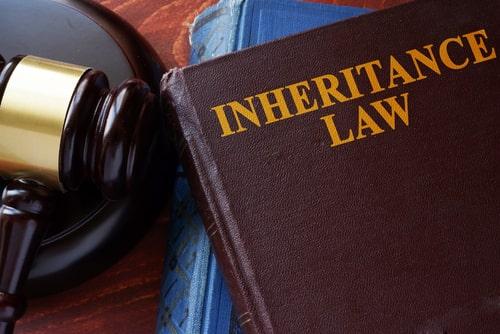Recent Blog Posts
Do I Still Pay Child Support if I Got Laid Off?
 When the Illinois economy slows down, the pace of layoffs accelerates throughout the state. It can become very difficult to keep up with your child support obligations when you do not have your full income. However, child support is ordered by a court, and unless the court changes your child support obligations, you would still need to pay as obligated.
When the Illinois economy slows down, the pace of layoffs accelerates throughout the state. It can become very difficult to keep up with your child support obligations when you do not have your full income. However, child support is ordered by a court, and unless the court changes your child support obligations, you would still need to pay as obligated.
The Court May Modify Your Child Support
The court may order a reduction in the child support that you pay if you can prove that you have suffered a significant cut in your income. If you are out of work for any extended period of time, you should file a motion to reduce child support with the court. The judge may order lowered child support.
Courts often take a different view if the paying parent is fired from their job with cause. Then, judges often deny a request to modify child support.
Once you find a job again, the other parent may file a motion to modify to raise child support to reflect your new income. However, that modification would not be retroactive to cover the reduced payments.
When Can Non-Parents File for Visitation Under Illinois Law?
 Under Illinois law, when the parents of a child are no longer together, the court will issue an order that stipulates the allocation of parental responsibilities and what the parenting time schedule for the child will be. However, Illinois law also recognizes the importance of maintaining meaningful relationships between a child and non-parental figures who the child has a significant bond with. In these situations, that person can petition the court in order to seek visitation time with the child. The following are some of the relationships that may qualify.
Under Illinois law, when the parents of a child are no longer together, the court will issue an order that stipulates the allocation of parental responsibilities and what the parenting time schedule for the child will be. However, Illinois law also recognizes the importance of maintaining meaningful relationships between a child and non-parental figures who the child has a significant bond with. In these situations, that person can petition the court in order to seek visitation time with the child. The following are some of the relationships that may qualify.
Grandparents
Grandparents are one of the parties that have the right to petition the court in order to request visitation. The grandparent must be able to show the court that awarding visitation is in the child’s best interest. They must also be able to show one of the following conditions are met:
-
The child’s parent has been dead or missing for at least three months.
Your Marriage is Ending Because of Adultery. What Now?
 Many Illinois divorces are triggered, at least indirectly, by adultery. The betrayed party, understandably hurt and angry, may wish to seek legal revenge against the person who interfered in their marriage. While revenge may seem tempting, it is not feasible to take legal action against someone for breaking up your marriage. However, it is important to understand how adultery may affect the divorce proceedings.
Many Illinois divorces are triggered, at least indirectly, by adultery. The betrayed party, understandably hurt and angry, may wish to seek legal revenge against the person who interfered in their marriage. While revenge may seem tempting, it is not feasible to take legal action against someone for breaking up your marriage. However, it is important to understand how adultery may affect the divorce proceedings.
How Does Illinois Law View Adultery in Divorce Cases?
In Illinois, all divorces are based on “irreconcilable differences,” as it is a no-fault divorce state. Although adultery is no longer a legally recognized ground for divorce, it may still be taken into account during divorce proceedings. If a spouse’s infidelity is causing problems in the family, divorce might be a solution to consider. Adultery could affect how marital property is divided and spousal support payments. According to Illinois law, judges must decide about alimony without considering marital misconduct. Although marital misconduct may not directly impact divorce proceedings, it can still affect other aspects, such as property division.
Signs it is Time to Consider a Guardianship for Your Elderly Relative
 While most people would not want to be placed under a guardianship unless it were absolutely necessary, the fact is that in many cases, obtaining guardianship over an elderly loved one is truly necessary. When an older adult begins to lose the capacity to care for themselves or to manage their own healthcare and finances, initiating guardianship proceedings is often the best way to protect them. Having guardianship over your elderly family member can allow you to step in and begin making important decisions for them and managing their affairs. It is not an easy decision to make. Rather, making the choice to begin seeking guardianship can be emotionally fraught. You may feel as if you are taking their independence, when in fact, it is the natural effects of aging that have done so.
While most people would not want to be placed under a guardianship unless it were absolutely necessary, the fact is that in many cases, obtaining guardianship over an elderly loved one is truly necessary. When an older adult begins to lose the capacity to care for themselves or to manage their own healthcare and finances, initiating guardianship proceedings is often the best way to protect them. Having guardianship over your elderly family member can allow you to step in and begin making important decisions for them and managing their affairs. It is not an easy decision to make. Rather, making the choice to begin seeking guardianship can be emotionally fraught. You may feel as if you are taking their independence, when in fact, it is the natural effects of aging that have done so.
A. Traub & Associates is committed to helping family members and loved ones of aging adults pursue guardianship as a means of protecting the elder. We understand the difficulty involved in making the decision to pursue guardianship and strive to maintain privacy and dignity for all involved.
What is The Role of a Forensic Accountant in an Illinois Divorce Case?
 Finances play a crucial role in a divorce case. When there are complicated financial circumstances in a divorce, a forensic accountant may provide expert analysis and testimony. The primary objective of a forensic accountant is to assist in painting an accurate financial picture of the marital estate so that asset division, child custody, and other divorce issues can be determined. Forensic accountants are often used in divorce cases in which a spouse is misrepresenting his or her financial situation. A divorcing spouse may hide assets, undervalue assets, or lie about his or her income. A forensic accountant’s job is to uncover the truth and assist the divorce lawyer during the case.
Finances play a crucial role in a divorce case. When there are complicated financial circumstances in a divorce, a forensic accountant may provide expert analysis and testimony. The primary objective of a forensic accountant is to assist in painting an accurate financial picture of the marital estate so that asset division, child custody, and other divorce issues can be determined. Forensic accountants are often used in divorce cases in which a spouse is misrepresenting his or her financial situation. A divorcing spouse may hide assets, undervalue assets, or lie about his or her income. A forensic accountant’s job is to uncover the truth and assist the divorce lawyer during the case.
Tracing and Identifying Assets
In many contested divorce cases, questions are raised about a spouse’s marital and non-marital assets. A forensic accountant traces and identifies marital assets, including assets that have been hidden. A spouse may try to hide assets by transferring assets to a third party, failing to disclose offshore accounts or other difficult-to-find property, or lying about the value of assets.
Termination of Parental Rights in Illinois Adoption Cases
 In the eyes of the law, a child can only have two parents. Although stepparents and other family members often play essential roles in a child’s life, they do not have the same rights and responsibilities as parents unless they formally adopt the child.
In the eyes of the law, a child can only have two parents. Although stepparents and other family members often play essential roles in a child’s life, they do not have the same rights and responsibilities as parents unless they formally adopt the child.
Whether you are interested in a relative adoption, private adoption, or another type of adoption, it is important to understand how the termination of parental rights may play a role in your case.
Voluntary Termination of Parental Rights
In some cases, a child’s parents willingly give up their parental rights. A parent may make the decision to surrender their parental rights if they suffer from severe substance abuse or other personal problems that make them unable to care for a child.
Involuntary Termination of Parental Rights
In other cases, a parent’s parental rights are revoked against the parent’s will. Illinois courts only revoke parental rights if it is in the child's best interest. The courts want to keep families intact whenever possible. However, there are some situations in which it is better for the child if the parent’s parental rights are terminated.
Leaving Money to a Non-Family Caregiver? Read Illinois Law First
 Home health aides, skilled care providers, personal care aides, and other types of home care workers provide a valuable service to individuals who require consistent, ongoing care. If you suffer from health conditions and require assistance with medical needs or daily living tasks, you may grow very close to your caregiver. You may even come to think of the caregiver as if he or she was family.
Home health aides, skilled care providers, personal care aides, and other types of home care workers provide a valuable service to individuals who require consistent, ongoing care. If you suffer from health conditions and require assistance with medical needs or daily living tasks, you may grow very close to your caregiver. You may even come to think of the caregiver as if he or she was family.
Some people wish to express their gratitude for a home care worker by leaving them an inheritance in an estate plan. If you intend to leave money or other property to a caregiver, it is very important that you understand how Illinois law addresses inheritance left to caregivers.
Presumptively Void Transfers to Caregivers
Many people who receive care from an in-home health worker have significant medical problems that may make them vulnerable to exploitation or abuse. In order to combat this, Illinois law has established strict rules regarding asset transfers to non-family caregivers.
Can I Stop My Ex From Moving Away With Our Child?
 Divorced and unmarried parents who share custody of their children may run into many different types of disputes throughout the years. One of the most significant issues parents run into is that of parental relocation. When one parent wants to move a significant distance away with the child, it can make it difficult to nearly impossible for the other parent to spend adequate time with the child.
Divorced and unmarried parents who share custody of their children may run into many different types of disputes throughout the years. One of the most significant issues parents run into is that of parental relocation. When one parent wants to move a significant distance away with the child, it can make it difficult to nearly impossible for the other parent to spend adequate time with the child.
If your child's other parent wants to relocate to a new residence that is a significant distance away and you are concerned about how this will impact your child, it is important to know your legal rights and options in this situation.
Parental Relocation in Illinois
To understand your rights and options regarding relocation, it is necessary to understand the difference between a move and a relocation. Illinois law describes relocations based on where an individual currently lives and the distance between the current residence and the proposed future residents.
What Happens During Divorce If We Owe More of the Mortgage Than What the House Is Worth?
 Property division is an essential aspect of the Illinois divorce process. For many divorcing couples, their home is the most valuable asset they own. Unfortunately, in these difficult times, many people owe more on their mortgage than their house is worth.
Property division is an essential aspect of the Illinois divorce process. For many divorcing couples, their home is the most valuable asset they own. Unfortunately, in these difficult times, many people owe more on their mortgage than their house is worth.
If you find yourself in this predicament, you may have questions about what happens to the home and the mortgage during your divorce. The answer to this question depends on many factors. Read on to learn more.
How is an Upside Down Mortgage Handled During Divorce?
Typically, there are two main ways that divorcing spouses address the equity in their home. In some cases, the couple sells the house and divides the proceeds between them. In other cases, one spouse buys out the other spouse by retaining ownership of the home and compensating the other spouse with other marital assets, such as bank account balances, retirement assets, or vehicles.
What Should I Do If My Child’s Other Parent Is Not Following the Parenting Time Schedule?
 Separated and divorced parents often worry about how the separation will impact their relationship with their children. It can be extremely hard for a parent who is used to tucking their child into bed every night to go days or weeks without seeing the child.
Separated and divorced parents often worry about how the separation will impact their relationship with their children. It can be extremely hard for a parent who is used to tucking their child into bed every night to go days or weeks without seeing the child.
Most divorced parents are subject to a parenting time schedule that describes when each parent will spend time with the child. Parents are expected to comply with this schedule and transfer the child on time. While most parents will understand a few late drop-offs or early pickups, when the parenting time schedule is repeatedly violated, the other parent may need to take legal action.
Unlawful Visitation Interference
The parenting plan is not a suggestion. It is a legally binding court order. Parents who intentionally and consistently fail to comply with the provisions of the parenting plan may be subject to significant consequences.
According to Illinois law, withholding a child from the other parent, called "unlawful visitation interference," is considered a crime. Although it is a petty offense only punishable by a small fine, if a parent is found to have committed visitation interference for a third time, this is a Class A misdemeanor. A parent may also be found in contempt of court for violating the parenting plan.












